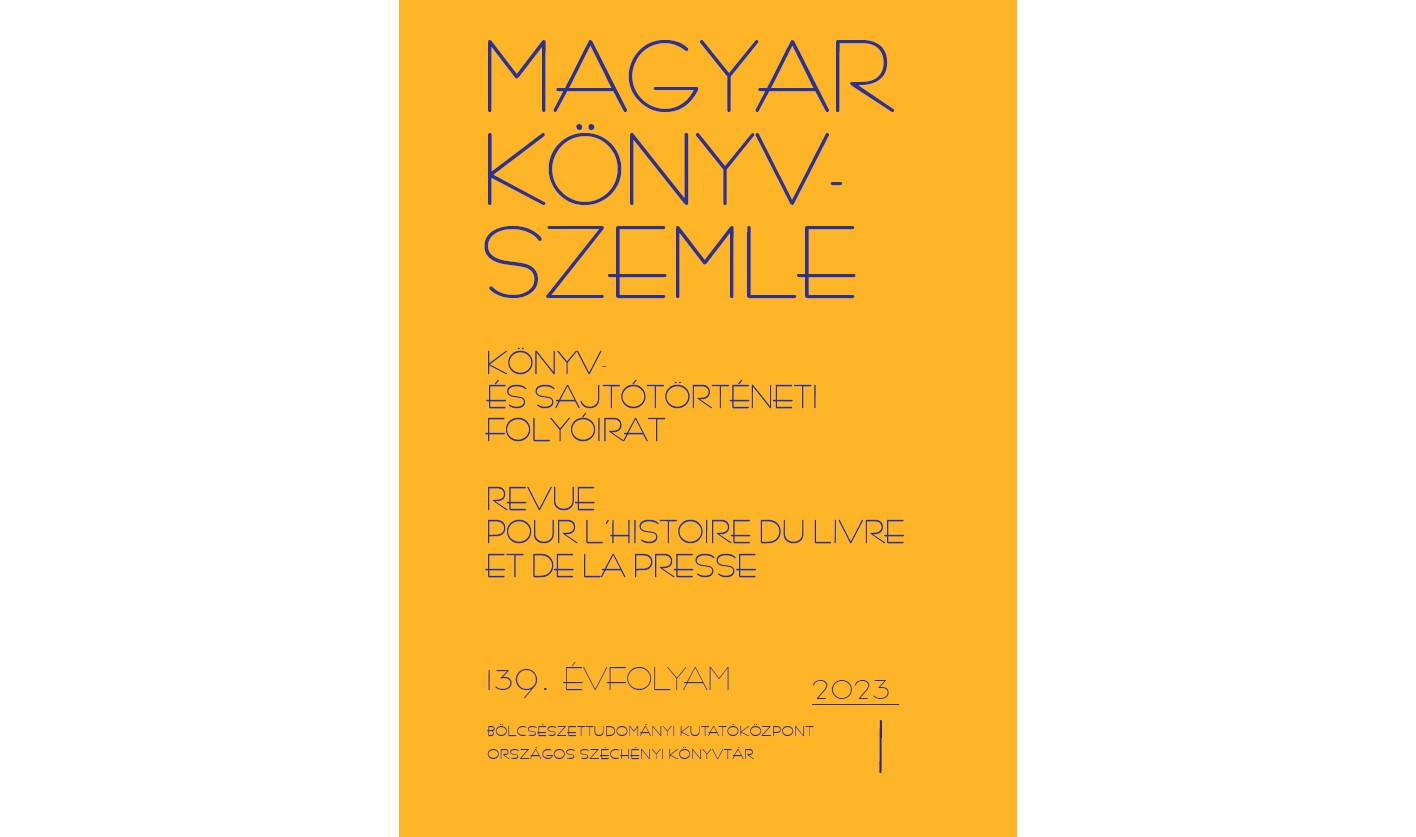Vienna or Leipzig?
The International Network of the Hungarian Book Trade in the 19th Century
Abstract
It is not a new finding that booksellers who settled in Hungary and Transylvania in the first half of the 19th century were predominantly German. They used their network of contacts in the motherland, bringing with them the customary law and traditions of German book publishing and book trade. Even in their new field of operation, they practically formed a (peripheral) part of the European-wide system of the German book trade.
For logical geographical reasons, the bookshops in Hungary and Transylvania worked through Viennese agents, since the consignments arrived in Hungary via this route anyway. It was only in the second half of the 1860s that the Hungarian capital began to become an independent centre of commerce.
Lacking their trade journal, Hungarian booksellers first published their notices and fought their internal battles in the Börsenblatt in Leipzig (from 1834) and later in the Oesterreichische Buchhändler-Correspondenz in Vienna (from 1870), until our newspaper, Corvina, began publication in 1878.
However, the German and Austrian associations not only provided a means of communication through their journals but also a way of entering the European professional community through their professional directories. Leipzig book publisher Otto August Schulz’s directory started in 1839, and then Moritz Perles’ similar database was published in Vienna from 1866.
Hungarian companies were quick to appear in both directories in large numbers, but if we count only the actual members of the respective associations, the numbers are much lower. The Börsenverein in Leipzig, for example, had only 7–8 Hungarian members between 1840 and 1880, while the Vienna association had many more.
In practice, however, the Hungarian and Austrian book trade was in constant rivalry and conflict. There were financial reasons for these conflicts: on the one hand, vulnerability to the Viennese agents, which made a profit by transiting all Hungarian transactions, and on the other hand, the distribution of books by Austrian firms in Hungary, which cut into the potential profits of local firms. It should not be overlooked, however, that both the Austrian and the Hungarian associations were in the same vulnerable, subordinate position vis-à-vis Leipzig, which was the book capital of Europe at the time and had absolute economic dominance.
From 1888 onwards, Austro-Hungarian relations, which were not always smooth, became very strained. In that year, the Börsenverein in Leipzig drew up new regulations which immediately forced all national associations to take action. This new hierarchical system was based on national (territorial) associations, which, as members of the Börsenverein, gave up part of their autonomy in exchange for exclusivity in the territory and the benefits of the parent association in Leipzig.
The Hungarian booksellers acted slowly, while the Austrian association took immediate action: its new statutes, drawn up before the deadline of 1 January 1889, were adopted in Leipzig and the official member organisation of the Börsenverein throughout the monarchy became the Verein der Österreichisch-Ungarischen Buchhändler. Thus, from then on, the Börsenverein only admitted those Hungarian booksellers who could prove that they were members of the Vienna association. The only thing the Hungarian Booksellers’ Association could do was to negotiate to the extent that the Hungarian section of the Vienna Association would not be chaired and that the two associations
would occasionally consult on matters of concern.
It took a world war to change the unchangeable conditions established in 1889. The thunder of guns quickly made the decades of rivalry fade away, and they suddenly became ‘happy peacetime’. Booksellers fighting bankruptcy at home or fighting on the front line no longer saw each other as enemies but as partners in destiny and career. Hungarian and Austrian booksellers clung to the memory of the old world with the same nostalgia, but that world was over.
After the end of the war, in 1920, negotiations began with the Börsenverein to recognise the Hungarian Booksellers’ Association as the professional representative body of the now independent Hungary, but it was only in 1929 that the contract was signed under which the Hungarian association became a recognised foreign body (Anerkannter Verein) of the Börsenverein.



